
Elicit vs. Illicit Blog Spring Cedars
Elicit vs. Illicit. First of all, "elicit" can never by synonyms with "illicit" because they function as different parts of speech in a sentence. "Elicit" is a verb, while "illicit" is an adjective. "Elicit" defines an action, "illicit" describes something. In addition to this, "illicit" appears more frequently in.

Elicit v. Illicit Advanced Lesson Plan by Teach Simple
Illicit is an adjective meaning not permitted, unlawful or immoral. It's used much more often than its opposite, licit, which means permissible. And just as illicit is never a verb, elicit.

Elicit vs. Illicit Word Mixups Learn Definitions and Word Usage Examples
A grammar guru The words illicit and elicit are often confused by writers. In this article, we explain the difference between them. Elicit means to evoke, educe (emotions, feelings, responses, etc.); to generate, obtain, or provoke as a response or answer when used as a verb.

Elicit vs. Illicit Englishgrammar grammar amwriting writingtips writing vocabulary Learn
Elicit is a verb that means to produce or evoke information, emotion or response to something. Illicit is an adjective that describes something illegal or not approved by society. Definition of Elicit As mentioned above, elicit is a verb, meaning it describes an action.
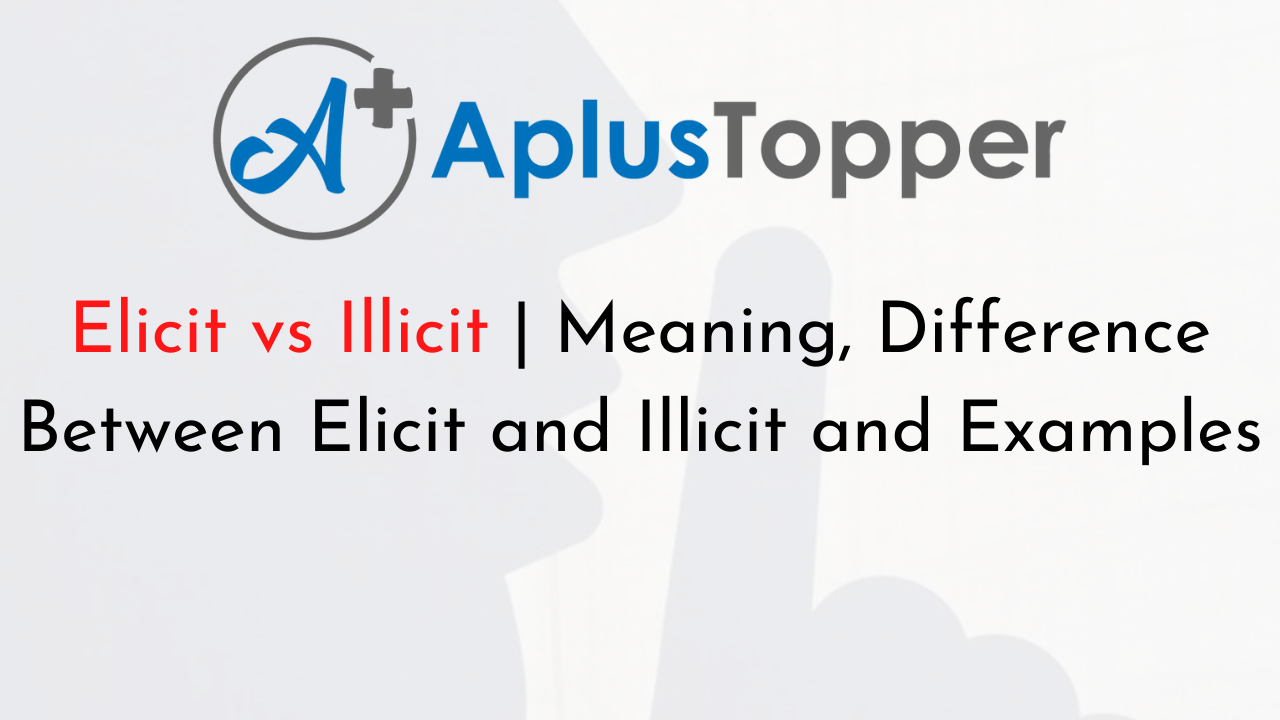
Elicit vs Illicit Meaning, Difference Between Elicit and Illicit and Examples CBSE Library
Elicit is a verb that refers to the act of "drawing a response to an action or statement.". On the other hand, illicit is an adjective that describes "something illegal or against traditions or customs.". While illicit behavior can elicit a negative response, it is important that you know how to differentiate between the two words.

“Elicit” vs. “Illicit” What’s the Difference?
Illicit is an adjective that refers to something that is "prohibited by law, custom or societal standards." It comes from the Old French illicite, which means "forbidden" and "unlawful." This word is itself a derivative of the Latin illicitus, which means "not allowed" or "illegal." The program was financed with illicit funds.

Elicit vs. Illicit (Grammar Rules) Writer's Digest
Elicit vs. Illicit: What's the Difference? Kari Lisa Johnson January 7, 2021 Grammar Tips "Elicit" and "illicit" are close to being homophones; the two words sound almost exactly the same although they have different meanings. According to Merriam-Webster, the "E" is emphasized when pronouncing elicit (i-ˈli-sət).
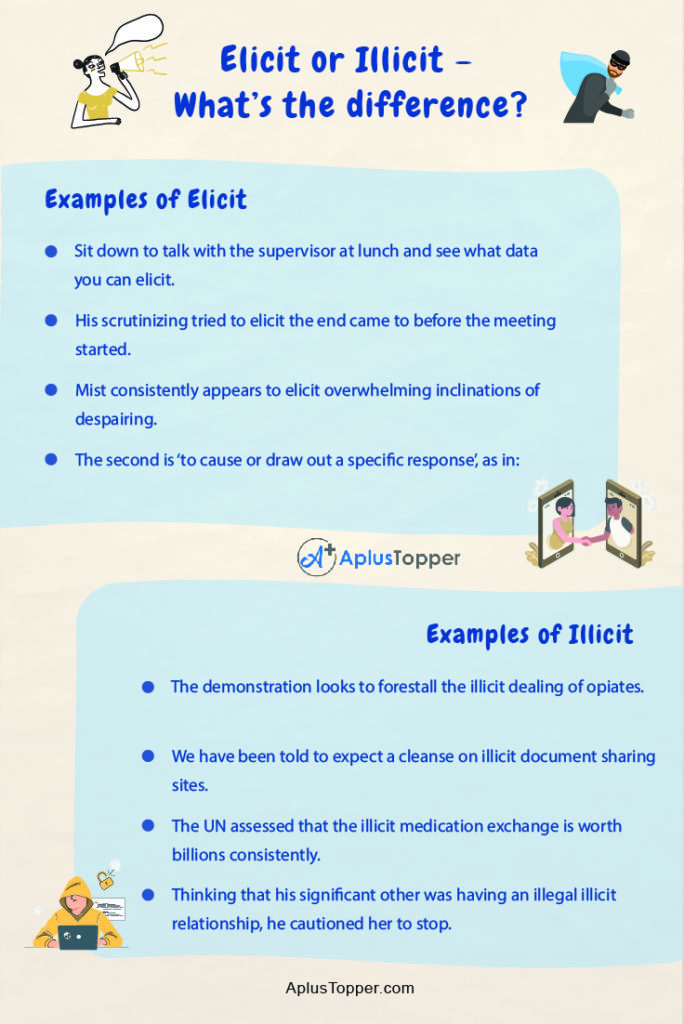
Elicit vs Illicit Meaning, Difference Between Elicit and Illicit and Examples CBSE Library
Elicit vs. Illicit. elicit Definition call forth (emotions, feelings, and responses) Examples elicit a solution illicit Definition contrary to accepted morality (especially sexual morality) or convention Examples.
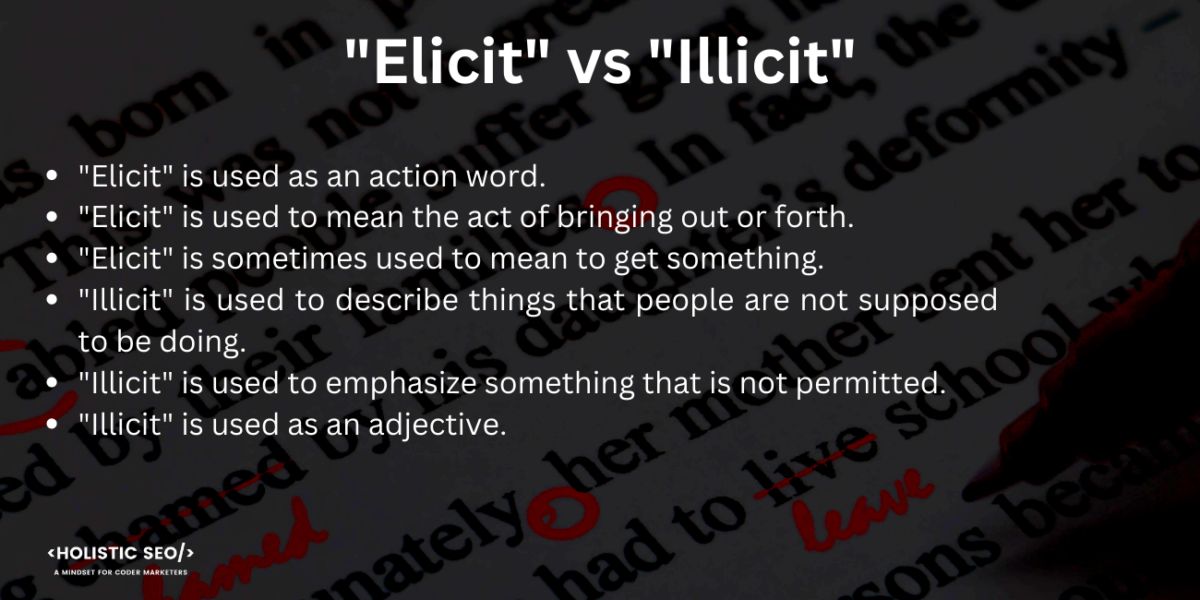
Elicit vs Illicit Difference between Them and How to correctly use them Holistic SEO
Illicit is an adjective, with two meanings. The first is 'not allowed by laws or rules', as in: The UN estimated that the illicit drug trade is worth billions every year. The second is 'going against moral standards; unaccepted or not approved of by society', as in: Suspecting that his wife was having an illicit affair, he warned her to stop.

ELICIT vs ILLICIT How to Get Illicit vs Elicit Right? Confused Words English phrases
The difference between elicit vs illicit Sentence examples with illicit Sentence examples with elicit Synonyms of illicit Synonyms of elicit Origin of illicit Origin of elicit Check out other commonly confused words Sources When to use illicit vs elicit? Illicit/elicit in text conversation.
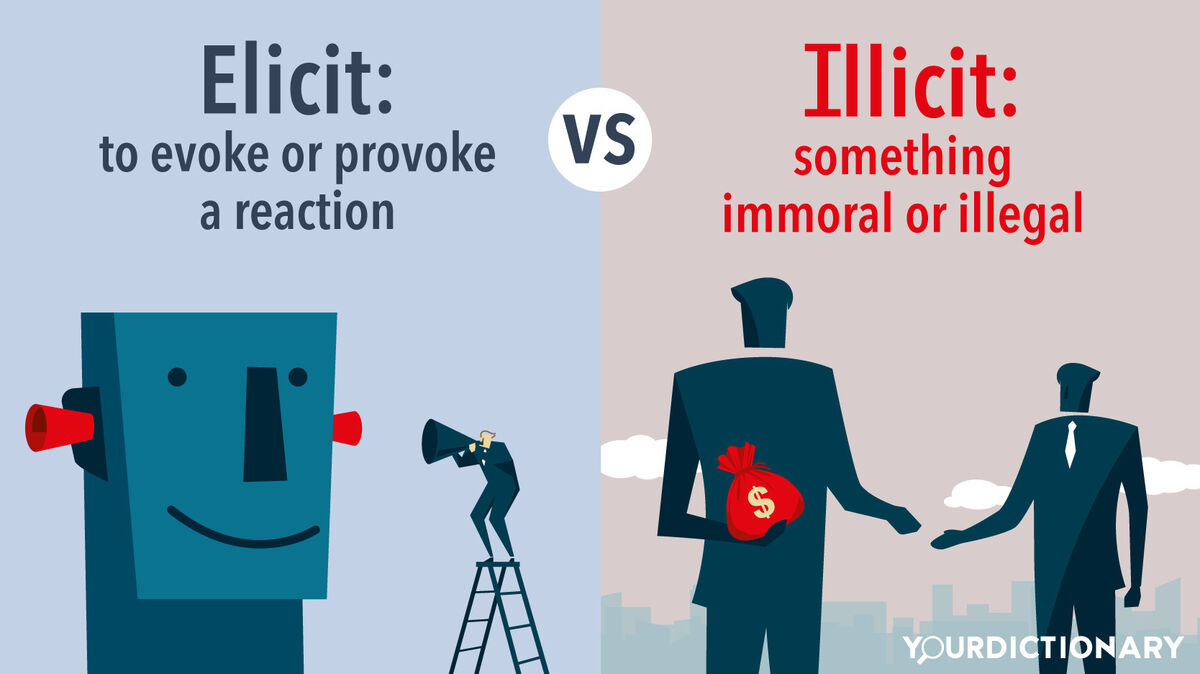
Elicit vs. Illicit Revealing the Difference YourDictionary
Elicit often mean 'to get something'. Illicit, on the other hand, describes something illegal. Because they are pronounced the same but have different meanings, we call these words. These words are often confused - even by. So, how to tell the difference between them? Elicit or Illicit? That is the question of this Grammar 101 article.

Antonyms, Synonym, Learning Languages, Writing Skills, Adjectives, Verb, Police Officer, Grammar
Difference between 'Elicit' and 'Illicit' 'Elicit' and 'illicit' are often confused because of their similar sounds, but they have different meanings. 'Elicit' refers to the act of drawing out something or evoking a response, while 'illicit' refers to something that is prohibited or considered unacceptable by law, rules, or custom.

Illicit vs Elicit /Pair of words / Confusing words by Zeeshan Shafique YouTube
"Elicit" means to draw out or to obtain (usually information). For example: Act like you're his friend in order to elicit more information. Illicit "Illicit" means illegal. For example: We found thousands of cartons of illicit cigarettes. More about "Elicit" and "Illicit" Elicit The verb "to elicit" means to obtain.

Elicit vs Illicit Meaning, Difference Between Elicit and Illicit and Examples A Plus Topper
Elicit and illicit are homophones, which is why many people get these two words confused. They have the same pronunciation/ɪˈlɪsɪt/, but different definitions. Elicit | Illicit Elicit means "to call forth or draw out (something, such as information or response)." Illicit means "not permitted."
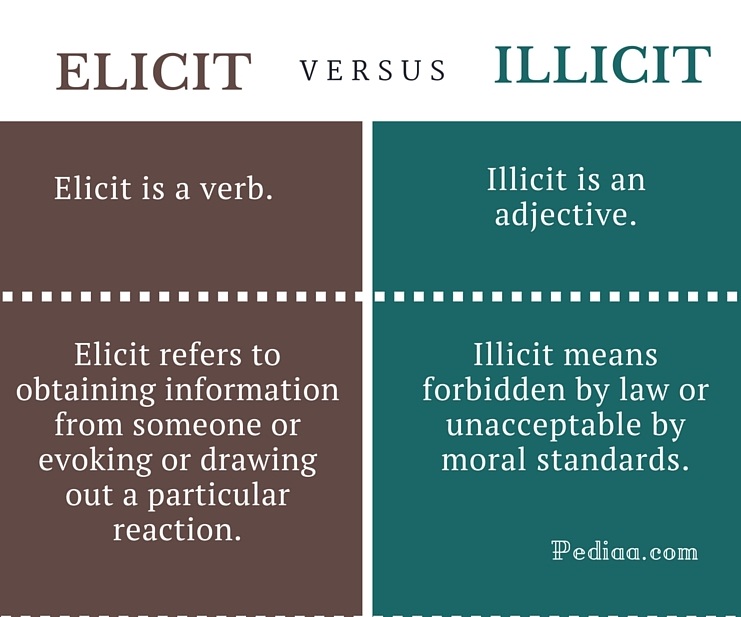
ElicitとIllicitの違いとは?分かりやすく解説! トーマスイッチ
Elicit vs. Illicit: What's the Difference? Marcus Froland December 12, 2023 Have you ever stumbled upon the words elicit and illicit while reading or writing, only to scratch your head in confusion? These homophones share more than just pronunciation; their visual similarity can also cause mix-ups. Fear not!
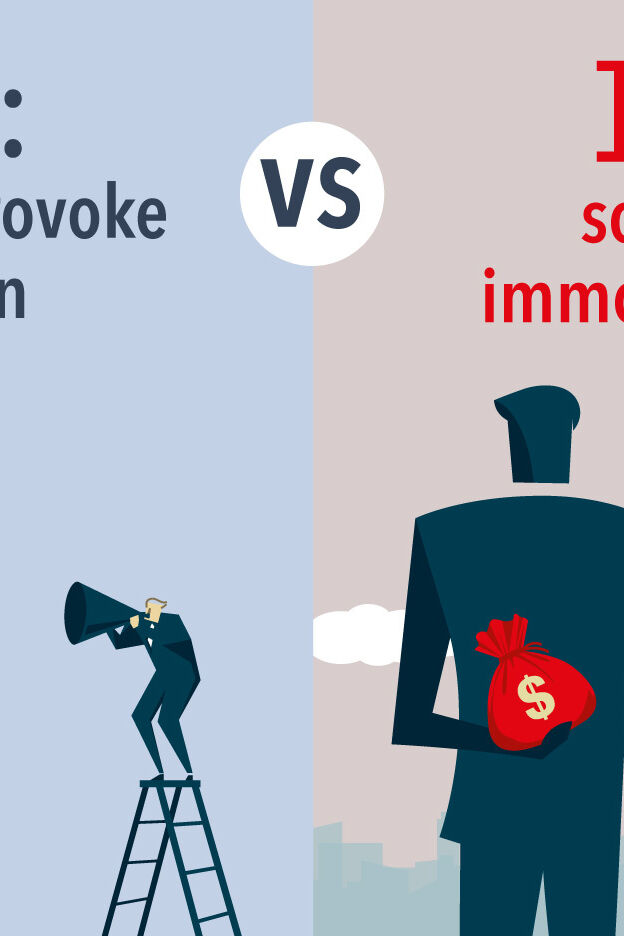
Elicit vs. Illicit Revealing the Difference YourDictionary
Remembering the Difference There is a helpful trick to help you remember the difference between elicit and illicit. The trick is to think of the first letter of each word and what you are trying to get across. Illicit refers to Illegal. Illicit is an adjectIve. Elicit refers to Evoke. You can also remember that Elicit is a vErb.